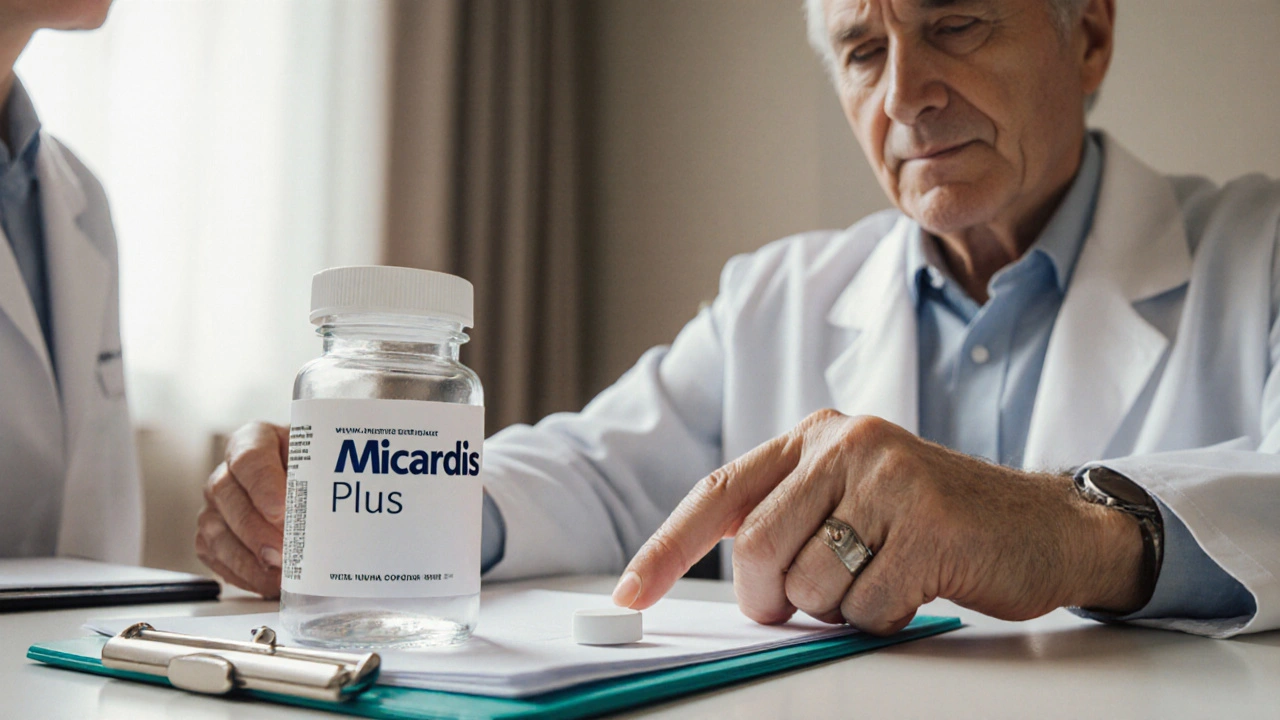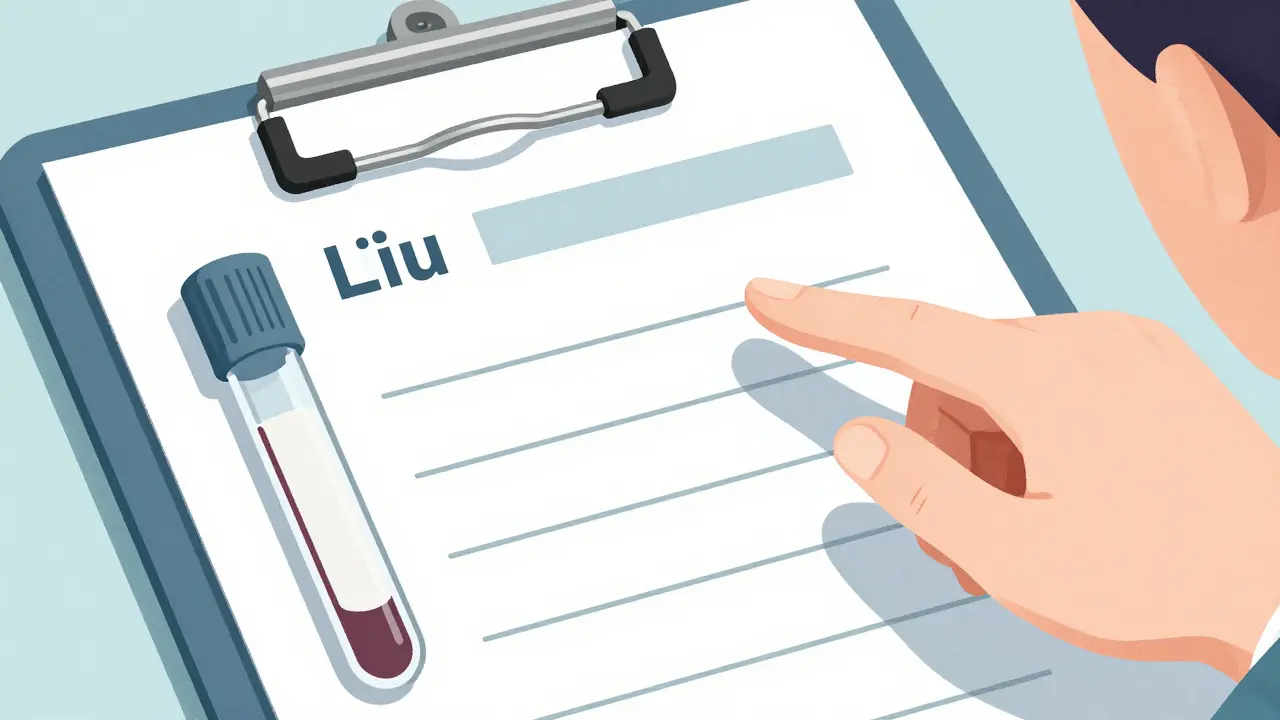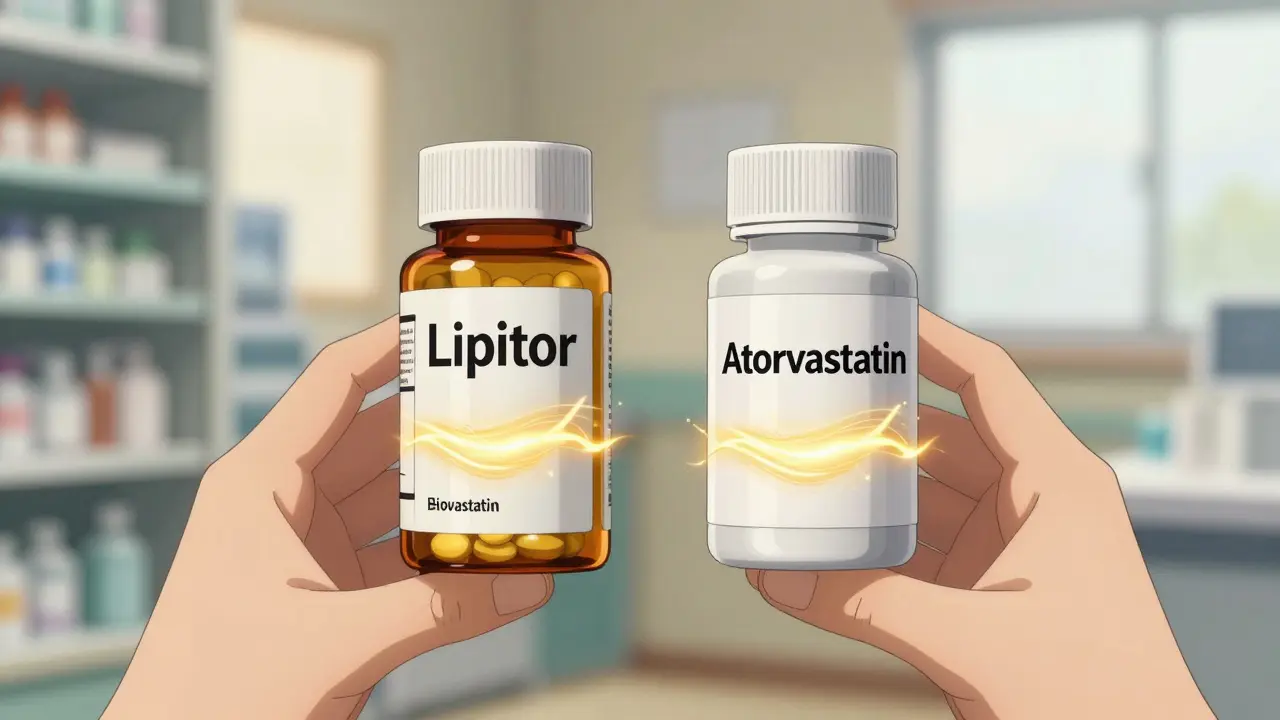Hypertension Medication Comparison Tool
Personalize Your Comparison
Answer a few questions to see which hypertension medication is best for you.
Recommended Medications
Micardis Plus
Long half-life, once-daily dosing
Cozaar HCT
Well-tolerated, lower cost
Lotrel
Dual mechanism for angina patients
Diovan HCT
Lower dizziness risk in elders
Avalide
Renal protective in diabetics
Lisinopril
Very low cost, extensive data
When doctors prescribe a combo pill for high blood pressure, patients often wonder if there’s a better option out there. Micardis Plus comparison can feel overwhelming because the market is crowded with similar combination drugs, each touting its own benefits. This guide cuts through the noise by explaining what MicardisPlus actually is, who it helps most, and how it stacks up against the most common alternatives.
What Is MicardisPlus?
MicardisPlus is a fixed‑dose combination of telmisartan (an angiotensinII receptor blocker) and hydrochlorothiazide (a thiazide diuretic). The tablet delivers 40mg of telmisartan and 12.5mg of hydrochlorothiazide, though lower strengths exist for patients who need a gentler start.
Telmisartan blocks the action of angiotensinII, relaxing blood vessels and lowering resistance. Hydrochlorothiazide helps the kidneys excrete sodium and water, reducing blood volume. Together they address two key drivers of hypertension-vascular tone and fluid overload-so a single pill can often replace two separate prescriptions.
Who Typically Takes MicardisPlus?
- Adults diagnosed with stage1 or stage2 essential hypertension who need both a blocker and a diuretic.
- Patients who have struggled with adherence to multiple pills.
- Individuals without severe kidney impairment (eGFR≥30mL/min/1.73m²) or electrolyte‑balance issues.
Because telmisartan has a long half‑life (≈24h), the medication can be taken once daily, usually in the morning.

Top Commercial Alternatives
Below are the most widely prescribed combo or single‑agent alternatives that clinicians consider when MicardisPlus isn’t a perfect fit.
CozaarHCT (Losartan+Hydrochlorothiazide)
CozaarHCT combines losartan, another ARB, with the same diuretic dose as MicardisPlus. Losartan is slightly less potent at the 50mg dose but is often chosen for patients who experience cough with ACE inhibitors.
Lotrel (Amlodipine+Benazepril)
Lotrel pairs a calcium‑channel blocker (amlodipine) with an ACE inhibitor (benazepril). This combo targets both vascular smooth‑muscle relaxation and renin‑angiotensin suppression, making it attractive for patients with concurrent angina.
DiovanHCT (Valsartan+Hydrochlorothiazide)
DiovanHCT uses valsartan, an ARB with a slightly shorter half‑life than telmisartan, paired with the same thiazide dose. Valsartan is known for a lower incidence of dizziness in elderly patients.
Avalide (Irbesartan+Hydrochlorothiazide)
Avalide offers irbesartan, an ARB that may provide better renal protection in diabetic patients, again combined with hydrochlorothiazide.
Lisinopril (ACE inhibitor, single agent)
Lisinopril is a stand‑alone ACE inhibitor often prescribed when a diuretic isn’t needed or when clinicians want to avoid ARB‑related drug‑drug interactions. It’s cheap and has a solid 30‑year safety record.
Side‑Effect Profiles at a Glance
- Telmisartan (MicardisPlus): mild dizziness, rare hyperkalemia.
- Losartan (CozaarHCT): similar dizziness, occasional abdominal pain.
- Amlodipine/Benazepril (Lotrel): swelling of ankles, dry cough (from benazepril).
- Valsartan (DiovanHCT): headache, less cough than ACE inhibitors.
- Irbesartan (Avalide): low incidence of cough, possible fatigue.
- Lisinopril: dry cough (up to 10% of patients), elevated potassium.
Cost Comparison (2025 US Average)
| Brand (Strength) | Drug Class | Typical Monthly Cost (USD) | Key Advantage | Typical Patient Fit |
|---|---|---|---|---|
| MicardisPlus 40mg/12.5mg | ARB+Thiazide | $45 | Long half‑life, once‑daily dosing | Patients needing strong, consistent BP control |
| CozaarHCT 50mg/12.5mg | ARB+Thiazide | $38 | Well‑tolerated, lower cost | Cost‑sensitive patients |
| Lotrel 5mg/10mg | Calcium‑Channel Blocker+ACE inhibitor | $62 | Dual mechanism for angina patients | Patients with chest pain + hypertension |
| DiovanHCT 80mg/12.5mg | ARB+Thiazide | $41 | Lower dizziness risk in elders | Older adults on multiple meds |
| Avalide 150mg/12.5mg | ARB+Thiazide | $44 | Renal protective in diabetics | Diabetic hypertension |
| Lisinopril 20mg | ACE inhibitor | $8 (generic) | Very low price, extensive data | Patients without cough issues |

Pros and Cons of MicardisPlus vs. Alternatives
| Medication | Pros | Cons |
|---|---|---|
| MicardisPlus | Long half‑life, high ARB potency, once‑daily dosing | Higher price than generic losartan combo, may cause mild hyperkalemia |
| CozaarHCT | Cheaper, well‑studied, good tolerability | Shorter half‑life, may need strict timing |
| Lotrel | Addresses both hypertension and angina, strong BP reduction | Higher cost, risk of peripheral edema from amlodipine |
| DiovanHCT | Lower dizziness in seniors, similar efficacy | May be less effective at very high BP levels |
| Avalide | Renal benefits for diabetics | Limited availability in some pharmacies |
| Lisinopril | Very low cost, easy titration | Cough, contraindicated in pregnancy |
How to Choose the Right Combination
- Assess comorbidities. Diabetes pushes you toward irbesartan combos; angina leans you to calcium‑channel‑plus‑ACE options.
- Check kidney function. If eGFR is below 30mL/min, avoid thiazides or choose a lower dose.
- Consider side‑effect tolerance. A dry cough flags an ACE inhibitor; swelling favors ARBs.
- Factor in cost. For uninsured patients, generic losartan/HCT or lisinopril may be essential.
- Review dosing convenience. Once‑daily ARB combos (MicardisPlus, CozaarHCT, DiovanHCT) boost adherence compared with twice‑daily regimens.
Discuss these points with your clinician; the best choice is the one that balances effectiveness, safety, and what you can actually afford.
Frequently Asked Questions
Can I switch from MicardisPlus to a generic ARB/HCT combo?
Yes. Most doctors will cross‑taper for a few days to avoid a sudden dip in blood pressure. The generic losartan‑hydrochlorothiazide combo usually costs less and works similarly for most patients.
Is MicardisPlus safe during pregnancy?
No. Both telmisartan and hydrochlorothiazide belong to drug categories that are contraindicated in pregnancy because they can affect fetal kidney development and cause low amniotic fluid.
What monitoring is needed after starting MicardisPlus?
Baseline kidney function (creatinine, eGFR), electrolytes (potassium, sodium), and blood pressure readings for the first two weeks. Follow‑up labs are typically repeated after one month and then every 3‑6months.
Why might a doctor add a thiazide to an ARB?
Thiazides enhance the blood‑pressure‑lowering effect by reducing fluid volume, while ARBs counteract the body’s compensatory rise in renin. The combo often yields a 5‑10mmHg greater drop than either agent alone.
Are there any food or drug interactions with MicardisPlus?
Avoid potassium‑rich supplements or salt substitutes containing potassium chloride, as they can raise serum potassium when combined with telmisartan. NSAIDs (ibuprofen, naproxen) may blunt the BP‑lowering effect and increase kidney strain.
Choosing a blood‑pressure regimen isn’t one‑size‑fits‑all. By weighing efficacy, side‑effects, cost, and personal health factors, you can land on the combo that keeps your numbers in range without compromising quality of life.






Taryn Esses
October 13, 2025 AT 14:52Micardis Plus offers once‑daily dosing, which can simplify a busy routine.
For patients who prefer a single pill, it’s a reasonable option.
Albert Lopez
October 20, 2025 AT 13:32When assessing antihypertensive regimens, the pharmacokinetic profile of the agent is a primary consideration. Telmisartan, the angiotensin‑II receptor blocker component of Micardis Plus, possesses a half‑life exceeding 24 hours, allowing for sustained blood pressure control. The addition of hydrochlorothiazide (HCTZ) contributes a diuretic effect that can mitigate volume overload in patients with fluid retention. Clinical guidelines from the ACC/AHA recommend initiating therapy with a single‑pill combination when comorbidities are minimal, to improve adherence. However, trials have shown that thiazide‑type diuretics may increase the risk of hypokalemia, necessitating periodic electrolyte monitoring. For patients with concurrent diabetes, the modest uricosuric effect of HCTZ can be advantageous, yet the potential for hyperglycemia must be weighed. Cost considerations also factor into decision‑making; while Micardis Plus is priced higher than generic lisinopril, insurance formularies often mitigate out‑of‑pocket expense. In comparative studies, telmisartan‑based combinations have demonstrated superior tolerability relative to ACE‑inhibitor based regimens, particularly regarding cough incidence. The avoidance of cough can be clinically significant, as persistent dry cough is a common cause of premature medication discontinuation. Nevertheless, patients prone to angio‑edema should be cautioned, as any renin‑angiotensin system blocker carries a low but non‑negligible risk. The presence of renal impairment further complicates the picture; dose adjustments of HCTZ are recommended when estimated glomerular filtration rate falls below 30 mL/min. In geriatric populations, orthostatic hypotension is an observed phenomenon with diuretic‑containing combos, mandating slow titration. From a mechanistic standpoint, telmisartan also exhibits partial peroxisome proliferator‑activated receptor‑γ agonism, which may confer modest metabolic benefits. This ancillary effect is not a substitute for dedicated antidiabetic therapy but can complement lifestyle interventions. Ultimately, the choice between Micardis Plus and alternatives such as Cozaar HCT or Diovan HCT should be individualized, integrating blood pressure targets, comorbid conditions, and patient preferences.
Erica Harrington
October 27, 2025 AT 11:12I agree with the thorough breakdown; the peroxisome proliferator‑γ activity often goes unnoticed but can be a nice bonus for patients with metabolic syndrome.
Balancing efficacy, side‑effects, and cost is exactly what we need to focus on.
Patricia Mombourquette
November 3, 2025 AT 09:52The tool over‑simplifies the complex decisions around antihypertensives.
karl lewis
November 10, 2025 AT 08:32From a philosophical perspective, the reduction of a nuanced therapeutic landscape to a handful of scores mirrors the broader societal trend of quantifying human experience.
One might argue that such reductionism, while useful for initial triage, risks obscuring the individuality of each patient’s physiological response.
Moreover, the reliance on algorithmic outputs can lull both clinician and patient into a false sense of certainty, ignoring the inherent variability of drug metabolism.
In practice, the clinician’s judgment should remain the primary arbiter, informed but not dictated by the calculator.
Nevertheless, for patients overwhelmed by pill burdens, a single‑pill combination like Micardis Plus can indeed be a pragmatic compromise. 😊
Ultimately, the tool should be viewed as an adjunct, not a replacement, for shared decision‑making.
Amy Martinez
November 17, 2025 AT 07:12That’s a beautiful way to put it-numbers can guide us, but the human story behind each dosage matters most.
When a patient feels heard, adherence improves, regardless of the algorithm’s verdict.
Josh Grabenstein
November 24, 2025 AT 05:52Ever wonder why these comparison tools pop up just when big pharma pushes combo pills? It feels like a subtle nudge to steer us toward more lucrative, brand‑name products.
Marilyn Decalo
December 1, 2025 AT 04:32Oh, the drama of hidden agendas! While I’m not saying it’s a grand scheme, it’s hard to ignore the timing of new marketing pushes lining up with these shiny calculators.
Mary Louise Leonardo
December 8, 2025 AT 03:12Those tools are a double‑edged sword-convenient but sometimes too glossy.
Don’t let the sparkle blind you from the real side‑effects.
Alex Bennett
December 15, 2025 AT 01:52Sure, because a glossy interface automatically guarantees medical wisdom-just like a flashy billboard guarantees nutritional advice.
Mica Massenburg
December 22, 2025 AT 00:32There’s a reason why the data behind these scores isn’t always transparent; the folks behind the scenes prefer to keep the algorithm a mystery.
Sarah Brown
December 28, 2025 AT 23:12Let’s cut the nonsense and focus on what we actually know: the active ingredients, their mechanisms, and the patient’s own health profile. Ask your doctor for the full data sheet if you’re curious.
Just Sarah
January 4, 2026 AT 21:52In accordance with established clinical practice guidelines, it is prudent to consider both the pharmacodynamic and pharmacokinetic properties of antihypertensive agents; furthermore, patient‑specific variables such as renal function, electrolyte balance, and comorbid conditions must be thoroughly evaluated before finalizing therapy.
Anthony Cannon
January 11, 2026 AT 20:32Precisely. Micardis Plus provides a convenient once‑daily regimen, but clinicians should still individualize therapy based on the patient’s overall cardiovascular risk profile.
Kristie Barnes
January 18, 2026 AT 19:12I’ve tried Micardis Plus myself and liked the once‑daily thing, but I had to keep an eye on my potassium levels.
Zen Avendaño
January 25, 2026 AT 17:52Good point-monitoring labs is key with any thiazide‑containing combo; staying on top of potassium and creatinine helps catch issues early and keep blood pressure in check.